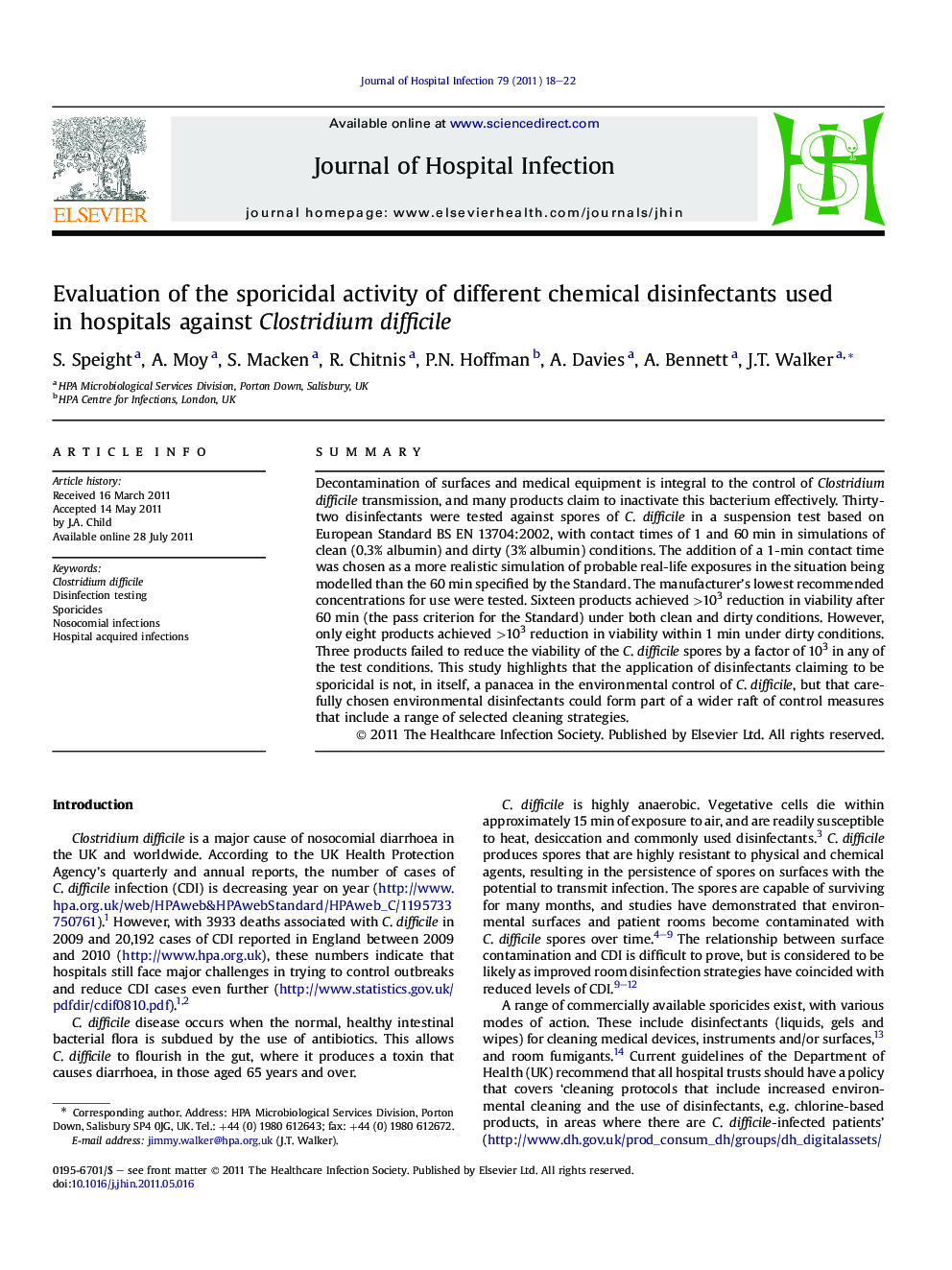| Article ID | Journal | Published Year | Pages | File Type |
|---|---|---|---|---|
| 3372239 | Journal of Hospital Infection | 2011 | 5 Pages |
SummaryDecontamination of surfaces and medical equipment is integral to the control of Clostridium difficile transmission, and many products claim to inactivate this bacterium effectively. Thirty-two disinfectants were tested against spores of C. difficile in a suspension test based on European Standard BS EN 13704:2002, with contact times of 1 and 60 min in simulations of clean (0.3% albumin) and dirty (3% albumin) conditions. The addition of a 1-min contact time was chosen as a more realistic simulation of probable real-life exposures in the situation being modelled than the 60 min specified by the Standard. The manufacturer’s lowest recommended concentrations for use were tested. Sixteen products achieved >103 reduction in viability after 60 min (the pass criterion for the Standard) under both clean and dirty conditions. However, only eight products achieved >103 reduction in viability within 1 min under dirty conditions. Three products failed to reduce the viability of the C. difficile spores by a factor of 103 in any of the test conditions. This study highlights that the application of disinfectants claiming to be sporicidal is not, in itself, a panacea in the environmental control of C. difficile, but that carefully chosen environmental disinfectants could form part of a wider raft of control measures that include a range of selected cleaning strategies.
